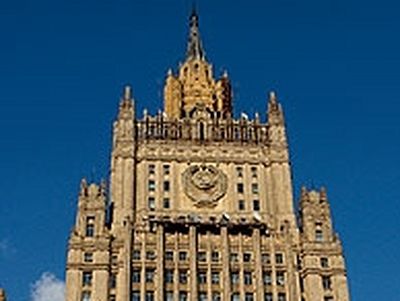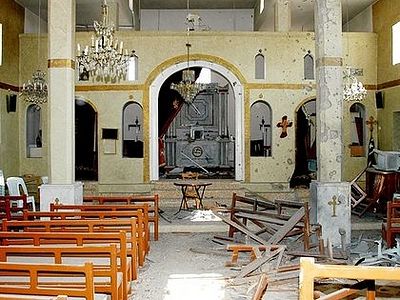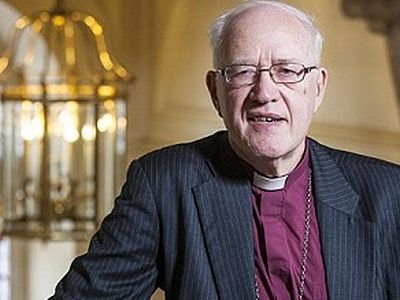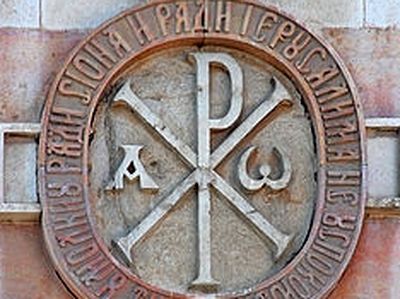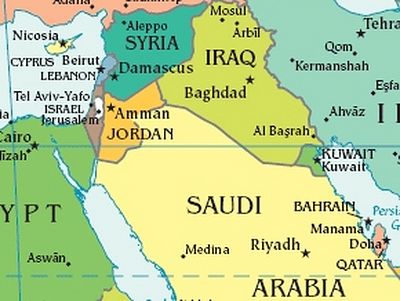SOURCE: FoxNews.com
By Johnnie Moore
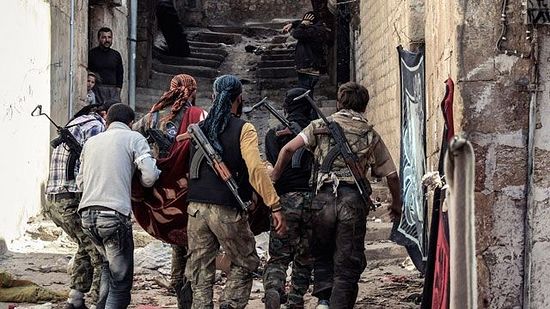
Christianity began in the East, not the West, yet today Christians in the East are enduring an all-out-assault by Islamic terrorists, while Christians in the West live their lives largely oblivious to it all. This has to change.
This is no imaginary persecution; in Syria alone there have been reports of kidnappings, Christian communities intentionally displaced by militants and, worst of all, shootings and beheadings of Christians who refused to convert to Islam.
In Egypt radicals have recently destroyed dozens of churches, and the once vibrant Christian population in Iraq has been decimated.
Christians in the West should stand up for those in the East out of regard for all they have given us over these thousands of years, if for no other reason.
See, what most American Christians don’t realize is that the “Islamic World” was once the Christian world. Some of the most well-known and influential leaders in the early church hailed from North Africa and the Middle East – like the warring theologians Athanasius and Arius, and the apologist Tertullian. It was for the library in Alexandria that the preeminent Greek version of the Torah (the “Septuagint”) was commissioned.
Today, St. Augustine would be called a Tunisian, Origen would be Egyptian and the Apostle Paul – who was on the road to Damascus when he encountered Christ – would have told the story of his conversion while heading to “Syria.”
It was also in the Syrian city of “Antioch” that Christians were first called “Christians,” and to this day there are as many Christian holy sites in that nation as anywhere else in the world.
When Jesus was born, and his life was threatened by the hysteria of King Herod, it was to Egypt that Joseph and Mary fled until Herod’s bloodlust subsided.
If the famed Council of Nicaea were held today, the headline would read: “Christian theologians gather in Turkey to settle long-held dispute about Christ’s deity,” and the part of the Jordan River where Jesus was baptized could have very well flowed through modern-day Jordan , as opposed to Israel.
Christianity was once so entrenched in the modern Islamic world that for centuries the center for Christian scholarship was Baghdad, and the long-ruined city of Merv (not far from border of what is now Afghanistan) was not only the largest city of its time, it was also best known as the center of Bible translation.
To this day – in nearly all of those places – there are Christian communities that have persevered through the ages, but now face the threat of extinction.
They have endured conflict after conflict, schism after schism, and they have learned how to coexist with peace-loving Muslims who are themselves fighting against the same radicalism that has caused the burning and bombing of hundreds of churches around the Islamic world since the spark of Arab Spring.
The trickling stream of Christianity runs in these places all the way to the era of Christ himself, but now – particularly in Syria – that stream is being dried up more quickly that most people realize.
Sadly, few Christians in the West have any idea this is going on, and I was once just like them.
Then I was invited last September to observe a meeting convened by Jordan’s King Abdullah in his country’s capital, Amman. Several dozen leaders of the Christian congregations of the East attended the meeting; I listened as these Catholic cardinals, Orthodox patriarchs and Anglican and Coptic bishops described the plight of their people.
No one was discussing their theological differences, because it was their churches that had been burned, their relatives who had been kidnapped and killed, and nearly every one of them told stories of consoling an inconsolable mother or child as they grieved the death of their last living loved one.
I wept as I heard their stories, and I wondered why Christians around the world weren’t incensed by it all.
Ironically, that meeting in Jordan was not convened by Christians, but by Muslims who cared about the plight of their Christian neighbors.
At one point, Jordan’s strong and kind king said that “it is a duty rather than a favor” to protect the Christians in the region, and Prince Ghazi bin Muhammad, a senior adviser to the king, acknowledged that “Christians were in this region before Muslims.” He said, “They are not strangers, nor colonialists, nor foreigners. They are natives of these lands and Arabs, just as Muslims are.”
While I was deeply encouraged by the tone of these Islamic leaders, I couldn’t help but ask myself, “I wonder how many Christians in the West even care about those in the East?”
In that moment, I decided I would be their advocate.
It was the Apostle Paul who once advised some friends in Greece to “pray that we may be delivered from wicked and evil people.”
I hear Paul’s prayer again on the lips of those persecuted today, and I call upon Christians everywhere to pray for and be an advocate for those upon whose foundation so much of our faith has been built.
Indeed, it isn’t a favor. It’s our duty.
